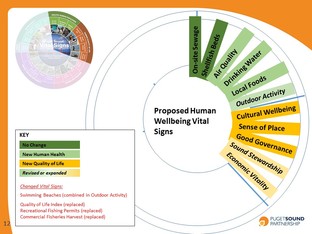"Aside from sustainability, the committee’s recommendations included taxing dessert, trained obesity “interventionists” at worksites, and electronic monitoring of how long Americans sit in front of the television."
Seriously? Tax dessert? Monitor how long you sit in front of the TV? How, exactly, would Big Brother propose to do that? Our public servants are being PAID to do this, far and near. Yes, near.

Feds Cave, Remove Sustainability From Dietary Guidelines
Panel had recommended 'plant-based' diets
By Elizabeth Harrington - October 7, 2015
Washington Free Beacon

The decision came a day before USDA Secretary Tom Vilsack and HHS Secretary Sylvia Burwell were set for a grilling from Congress on the new “Dietary Guidelines For Americans.” The secretaries are testifying before the House Agriculture Committee Wednesday morning.
The committee crafting the guidelines, which influence government food programs, had been criticized for being politically motivated after incorporating environmentalism into nutrition policy.
“There has been some discussion this year about whether we would include the goal of sustainability as a factor in developing dietary guidelines,” Vilsack and Burwell said in a joint blog post Tuesday. “(Sustainability in this context means evaluating the environmental impact of a food source. Some of the things we eat, for example, require more resources to raise than others.) Issues of the environment and sustainability are critically important and they are addressed in a number of initiatives within the Administration.”
“In terms of the 2015 Dietary Guidelines for Americans (DGAs), we will remain within the scope of our mandate in the 1990 National Nutrition Monitoring and Related Research Act (NNMRRA), which is to provide ‘nutritional and dietary information and guidelines’… ‘based on the preponderance of the scientific and medical knowledge,’” the officials said.
“The final 2015 Guidelines are still being drafted, but because this is a matter of scope, we do not believe that the 2015 DGAs are the appropriate vehicle for this important policy conversation about sustainability,” they added.
The federal panel tasked with creating the guidelines, which are updated every five years, included a subcommittee on sustainability for the first time. The inclusion led to a call for Americans to eat less meat to lower carbon footprints when their report of recommendations was sent to HHS and USDA this February.
The report received nearly 30,000 comments during the public comment period, which had to be extended after members of Congress voiced concern that the committee had “greatly exceeded their scope in developing recommendations” by adding sustainability.
The North American Meat Institute (NAMI), a critic of the panel’s recommendations, praised the decision to drop sustainability.
“As NAMI has noted in previous comments, while sustainability is an important food issue, it was outside of the Dietary Guidelines Advisory Committee’s scope and expertise and would be more appropriately addressed by a panel of sustainability experts that understands the complexity of the issue,” said Barry Carpenter, the group’s president. “It is reassuring that Secretaries Vilsack and Burwell have taken a strong stance to keep the Dietary Guidelines focused on nutrition and health.”
HHS and USDA are still reviewing the panel’s report of recommendations, and the final guidelines will not be completed until later this year.
Aside from sustainability, the committee’s recommendations included taxing dessert, trained obesity “interventionists” at worksites, and electronic monitoring of how long Americans sit in front of the television.

 RSS Feed
RSS Feed
